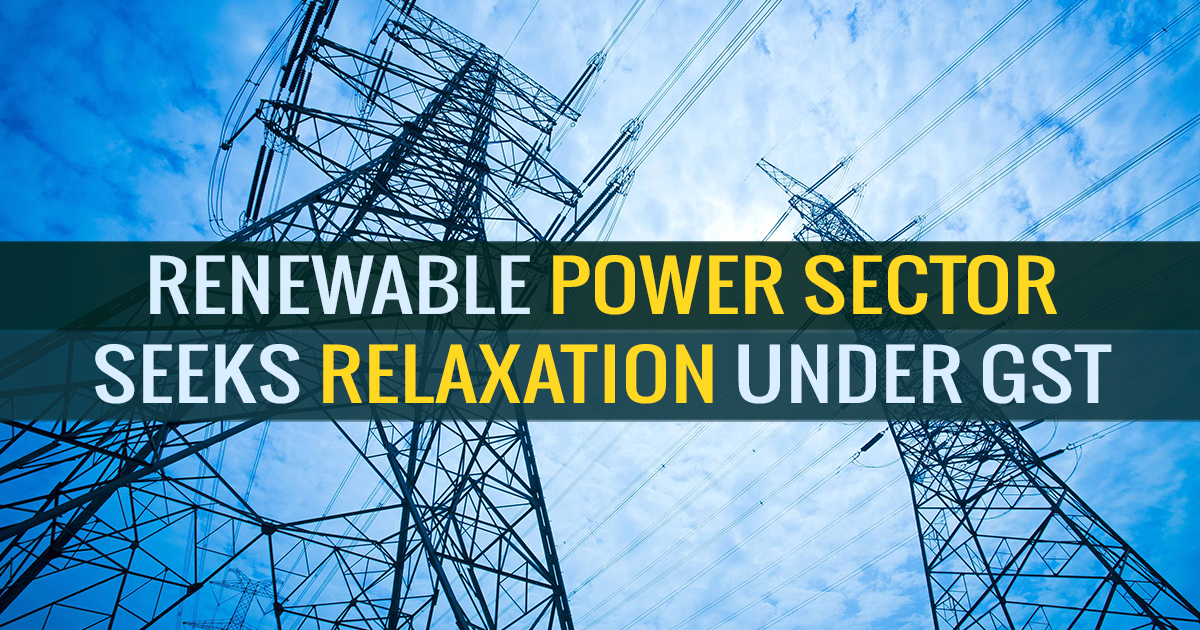The power generation has taken a good shift towards the natural sources and in which the solar energy is taken atop over various other methods, now the GST is coming on the way and there are many doubts regarding its impact on the power sector the Union power ministry has told the compelling goods and services tax (GST) Council led by finance minister Arun Jaitley that actualizing GST in its present frame could push up power era cost, particularly of renewable vitality, which will additionally gauge the capacity of obligation ridden circulation organizations to serve power unless particular alleviation measures are implicit.
While solar panels and other hardware utilized for power generation will go under GST, the last item—power—has been kept out. This implies power makers won’t have the capacity to set off part of the indirect tax risk on their yield utilizing credit for the taxes officially paid on crude materials and services benefited.
In a presentation made to the GST Council on 16 January, the power ministry proposed giving either esteemed fare status or zero GST rate for renewable power. The measures are proposed to extra power makers from the tax cost of keeping power out of GST, and to make up for the finish of existing tax exemptions.
As indicated by a duplicate of the presentation, the capital use of renewable vitality organizations—wind and solar—could go up by 10-12% which will warrant a power tax increment by 30-40 paise for wind power and 40-50 paise for solar power.
M.S. Mani, senior director, indirect tax, Deloitte India, says that about 350 goods are at present exempted from excise duty while VAT exemptions crosswise over states will mean around 200 things. Under GST, there will be not more than 100 exceptions which implies expanded tax occurrence on businesses utilizing things that lose the advantage of exclusion or concessional tax rate.
That is fundamentally on the grounds that focal excise obligation exemptions and concessional state value added tax (VAT) on hardware and solar panels (0-5% exacted by states) will clear a path for an 18% GST on the crude materials and services profited of by renewable power makers.
The ministry has in like manner encouraged the gathering to either consider renewable power as an esteemed fare or simply allocate a zero GST rate on clean vitality, which will permit power makers to get a discount on all the taxes already paid on the crude materials and services. There is no excise obligation on solar panels, however, states demand 0-5% concessional VAT on them and there is a 2% focal deals tax in the event of between state supply.
The solar power industry is seeing serious rivalry which has driven levies down from Rs.12 a kilowatt hour in 2010 to a noteworthy low of Rs 3 in 2016, which implies any cost acceleration is probably going to hurt them. The ministry likewise proposed comparable treatment for huge hydro-power ventures, which will be renamed as renewable vitality ventures.
Read Also: Major States to Get Benefits in Service Tax After GST
Also in the presentation, there were some points cleared like, “Any further tariff increase due to GST may have a multiplier effect on economic development as there will be difficulty in passing through its impact on agriculture and domestic consumers.”
Inderpreet S. Wadhwa, director and chief executive officer of Azure Power Global Ltd also mentioned some keynote like, “There are more than 200 active players in this industry and it is heading for consolidation in the face of competition.”
